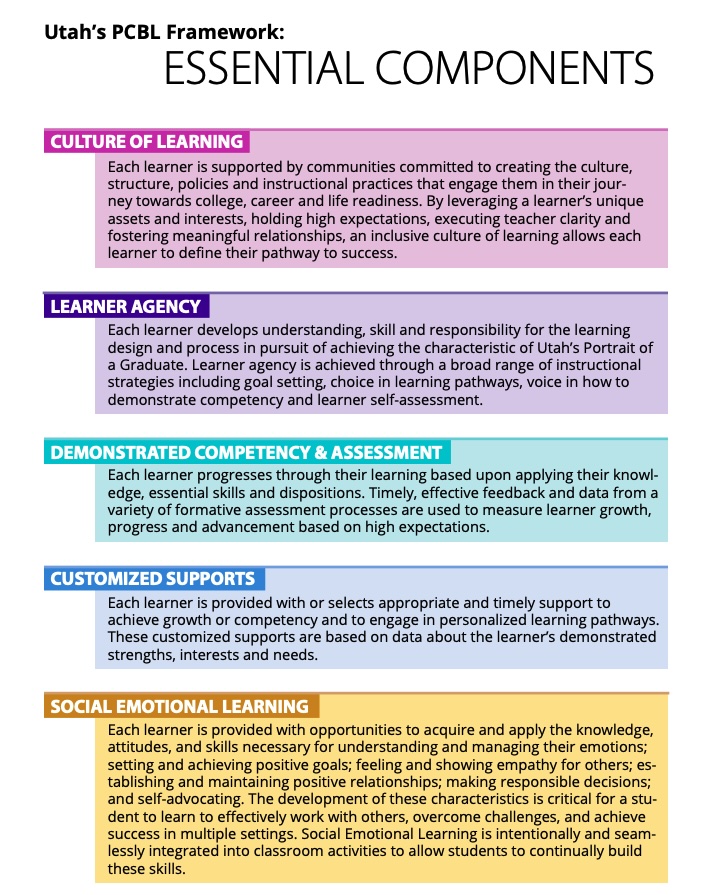- Home
- Teaching and Learning
- Personalized, Competency Based Learning (PCBL)
Personalized, Competency-Based Learning (PCBL)
What is Personalized Competency Based Learning (PCBL)?
PCBL moves the focus of the classroom from teaching to learning. It provides equitable access for each student to demonstrate core knowledge and skills in personalized and differentiated ways. PCBL moves instruction beyond information dissemination to a focus on the transferable skills necessary for success in the modern world.
Utah's Personalized, Competency-Based Learning (PCBL) Framework provides support to LEAs in establishing the educational conditions necessary for students to develop the mastery, autonomy and purpose called for in Utah's Portrait of a Graduate.

PCBL Resources
PCBL Aligned Evidence Based Practices
Culture of Learning
Customized Supports
Demonstrated Competency And Assessment
Learner Agency
Social Emotional Learning
Grant Programs:
The Utah Legislature has created a PCBL Grant Program to support LEAs in their efforts to plan, implement, scale, and expand their personalized learning and competency-based education initiatives. This program awards recipient LEAs five years worth of funding (provided all grant expectations are met). PCBL Grant applicants complete the below application to enter into the grant system. Afterwards, all Planning Grantees will have the opportunity to apply for four additional years of funding to carry out their plan (two years of implementation and two more years of expansion). Please see all grant application requirements specified in the link below.
Planning Grant Application
Planning grant applications are due by midnight on March 31st.
Current PCBL Grant Awardees: |
PCBL Grant Alumni: |
Cohort GCache County School District |
Cohort AAmerican Academy of Innovation |
Cohort FCareer Path High School |
Cohort BCity Academy |
Cohort E
South Sanpete School District |
|
Cohort DOdyssey Charter School |
|
Cohort CAlpine School District |
